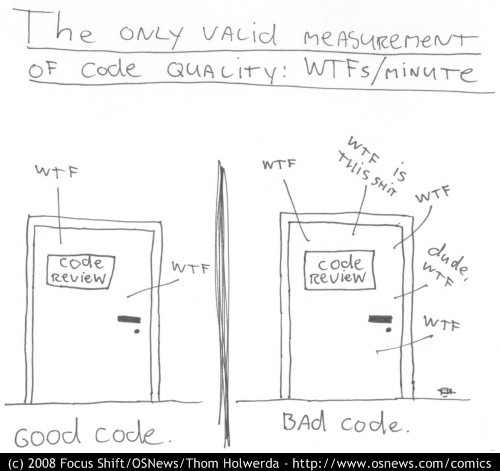Clean Code. What else?
Clean code is written by someone who cares. Our code does more than serve its purpose, it helps us deliver better work and provide quality support for users.

In “The Business Case for Clean Coders”, Robert C. Martin explains in under 15 minutes why clean code matters in business:
Robert C. Martin’s message to C-level executives is clear: clean code isn’t just a technical nicety — it’s a business imperative. Investing in clean code practices today can lead to significant dividends in the future, from cost savings to enhanced market reputation.
software@outware ~ $ ECONOMIC EFFICIENCY
$ Clean code leads to fewer bugs and easier maintenance. This translates to reduced costs in the long run. While writing clean code might seem time-consuming initially, it prevents expensive fixes and overhauls in the future.
software@outware ~ $ FASTER TIME-TO-MARKET
$ A clean codebase is easier to understand, modify, and extend. This means that new features can be added more quickly, and products can be launched or updated in a shorter time frame.
software@outware ~ $ REDUCED TECHNICAL DEBT
$ Just as financial debts accrue interest, technical debts (in the form of messy code) accumulate "interest" in the form of bugs, slow development, and increased complexity. By investing in clean code, businesses can avoid this debt and the associated “interest”.
software@outware ~ $ IMPROVED TEAM MORALE
$ Developers prefer working with clean code. A messy codebase can lead to frustration, burnout, and turnover. By prioritizing clean code, businesses can retain top talent and ensure a motivated, productive team.
software@outware ~ $ SCALABILITY AND FLEXIBILITY
$ As businesses grow, so do their software needs. Clean code is modular and easier to scale, allowing businesses to adapt to changing requirements without a complete overhaul.
software@outware ~ $ RISK MITIGATION
$ Bugs and software failures can lead to significant business losses, both in terms of finances and reputation. Clean code reduces the risk of such failures.
software@outware ~ $ STAKEHOLDER CONFIDENCE
$ When stakeholders (whether they’re investors, partners, or customers) know that a business prioritizes quality in its software development, it boosts their confidence in the company’s products and leadership.